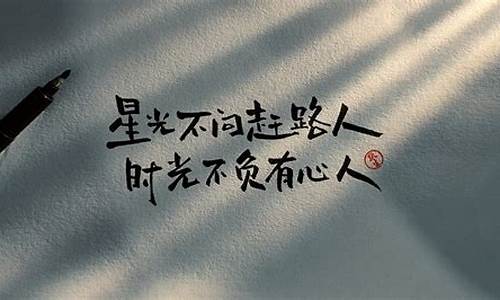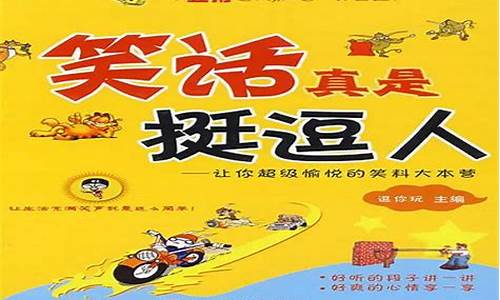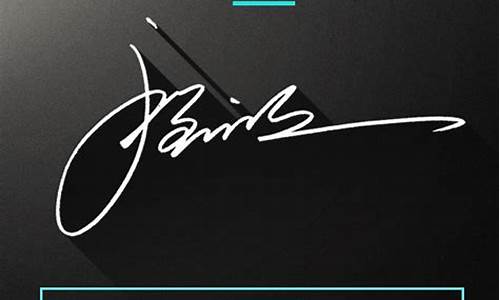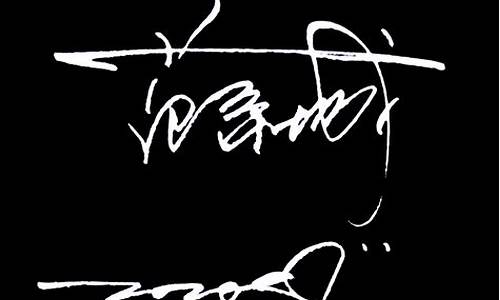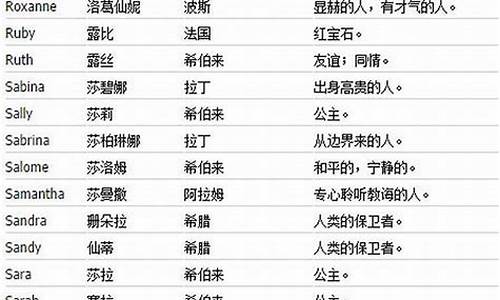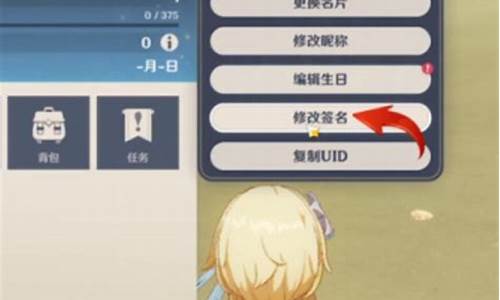七年级上册英语重点短语和句子总结_七年级上册英语重点短语和句子
1.初一英语上册语法知识点总结
2.七年级英语上册知识点总结
3.冀教版七年级英语上9单元知识点总结,有,单元单词,重点词组,重点句子,重点句型,所有知识点,谢谢了!
4.七年级英语重点句子
5.七年级上册英语句子有哪些?
6.七年级上册英语知识点总结
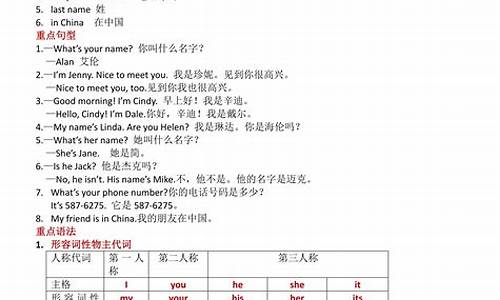
Unit 5 Do you hane a ball ?
(第一块)
一、一般现在时态
1、一般现在时态的概念
(1)、表示现在的状态(谓语多用系动词be)
(2)、表示经常或习惯性的动作(谓语是do类动词)
(3)、表示主语具备的性格和能力(谓语多是 speak like enjoy)
2、be (am is are)“是” ,英语中最重要的一个系动词。
do类动词,又叫实义动词。例如:have (有),play(玩,打 )等。3、一般现在时态的动词形式
一般现在时态规定:系动词be用现在式am is are 三个形式。
do 类动词用原型或第三人称单数形式。
“原形动词 + s / es”构成“第三人称单数形式”,与单数名词变复数
名词方法一样。
(1)、一般情况,动词后直接加s (清辅音后读 / s /, 浊辅音后度 / z /)
例如:brings 带来 calls 打电话 meets 遇见 needs 需要
(2)、以字母e结尾的动词,直接加s (读 / z /) 例如:
Likes 喜欢 takes 带走
(3)、以字母s x ch sh o结尾的动词,加es ( 读 / z / 或 / Iz/ )
例如: does 做 goes 走,去 watches 观看
(4)、以“辅音字母 + y”结尾的名词,变y为i,加es (读 / z /)
例如: study → studies 学习
( 思考:enjoy play have的第三人称单数形式是 )
4 、一般现在时态 主语与谓语动词的搭配
第一人称单数主语:I + am 或 V原形
he she it
this that
第三人称单数主语 单数名词 不可数名词 + is ; V单三形式
动词不定式
动名词
We you they
复数主语 these those + are ; V原形
复数名词
本块习题:用所给词的正确形式填空
1、I _______ ( have ) a ball .
2、She ______ ( have ) two __________ ( pingpong—ball ) .
3、He ______ ( play ) sports every day .
4、We ______ ( speak ) English .
5、Tom ______ ( call ) Jim every day .
6、My daughter ______ ( like ) apples .
7、His ______ ( friend ) knows English .
8、The girl ______ ( study ) English sometimes .
9、The _______ ( boy ) often watch TV .
10、Her uncle ______ ( go ) home on foot 。
本块词汇
动词或动词短语
have 有 吃 speak 说 讲 meet 遇见 call 打电话
know 知道 need 需要 bring 带来 take 带走
like喜欢 watch观看 do做 go走去
enjoy 喜欢 play 玩 study 学习 play sports参加体育运动
名词及其他
Soccer英式足球 ball求 often经常 sometimes有时
( 第二块 )
5、一般现在时态肯定句变否定句和一般疑问句的方法
肯定句动词类型 变否定句方法 变一般疑问句方法
be be+ not :
is not → isn’t
are not → aren’t
be 提到主语前 I→you
my→your
am→are
some→any
and→or
V原 don't+ V 原 Do加在主语前
V单三 does’t + V单三 ,
且V单三 → V原 Does加在主语前,
且V单三 → V原
can + V原 can + not→can’t can提到主语前
1、肯定句: I have a volleyball 我有个排球。
否定句: I have don’t a volleyball 我没有个排球 。
一般疑问句: Do you have a volleybal 你有个排球吗?
简略回答: Yes , I do . 是的,我有。 No , I don’t .不,我没有。
2、肯定句:Han Mei studies English every day . 韩梅每天学英语。
否定句:Han Mei does’t study English every day .韩美每天不学英语。
一般疑问句:Does Han Mei study English every day ?韩梅每天学英语?
简略回答: Yes , she does .是的,她学。 No , she doesn’t . 不,她不学。
本块练习题 把下列肯定句变成否定句、一般疑问句,并作简略回答。
1、 They like computers .
否:They ______ ______ computers .
疑:______they______ computers ? ___________-
2、 He has a sports club .
否: He ______ ______ a sports club .
疑:______he_____ a sports club ? ____________
3、 We watch TV sometimes .
否:We ______ ______ TV sometimes .
疑:_____ _____ _____ TV sometimes ? ____________
4、Tom often plays computers .
否:Tom ______ often______computer games .
疑:_____ Tom often _____ computer games ? ____________
4、 She has some basketballs .
否:She _____ ______ _____ basketballs .
疑:_____ she _____ _____ basketballs ? ____________
6、I enjoy playing sports every day .
否:I ______ ______ playing sports every day .
疑:______ ______ ______ playing sports every day ? ____________
7、. My daughter calls me sometimes .
否:My daughter ______ ______ me sometimes .
疑:_____ _____ daughter _____ me sometimes ? ____________
8、The girl speaks English and Chinese .
否:The girl ______ ______ English_____ Chinese .
疑:_____ the girl _____ English _____ Chinese ? ____________
本块词汇:
volleyball 排球 computer 电脑 don’t 不 doesn’t 不
study学习 some一些 any一些 game游戏
basketball篮球 daughter 女儿 and 和 or 和 或者
often 经常 sometimes有时 every day每天
play tennis打网球 sports club运动俱乐部
watch TV看电视
(第三块)
1、 play “玩,耍” ,在句中要灵活翻译。
ping—pong 打乒乓球
tennis 打网球
soccor 踢英式足球 球类名词前面不用
play volleyball 打排球 冠词the a an
basketball 打篮球
sports 参加体育运动
2、 Let’s = Let us . “让我们 ” 。
Let’s + V原 。常用来提出一个建议,表示“让我们干……吧” 。(1)、Let’s play tennis . 让我们打网球吧。
(2)、Let’s play computer games . 让我们玩电脑游戏吧。
(3)、Let’s watch TV . 让我们看电视吧。
3、That sounds good . “这个听起来好。” 该句型常用来肯定对方
== interesting 提出的建议。
== fun
4、It’s boring / relaxing . 它是无聊的 / 轻松地。
5、sports “ 运动” ,修书名时,它常用复数形式。
sports club 运动俱乐部 sports collection 运动收藏品
本块习题:1、补全对话
A:Let’s ______TV . B:That sounds ______ . I don’t like watching TV .
A:______ you have a ping—pong hat ? B:Yes , I do
A:Let’s______ ping—pong . B:That sounds ______. Let’s go .
2、改错 (1)、Let’s play the basketball . (2)、Let’s play a volleyball .
A B C A B C
(3)、Let’s watches TV .(4)、That sound interesting .
A B A B
(5)、I have a great sport collection .(6)、He has many sports club .
A B C A B C
本块词汇
tennis 网球 英式足球 volleyball 排球 basketball 篮球
sound听起来 interesting 有趣的 fun 有趣的 boring 无聊的
watch TV看电视
sports collection 运动收藏品
play sports 参加体育运动
computer games 电脑游戏
初一英语上册语法知识点总结
七年级上册英语所有重点句型是如下:
1、“主----动----宾----补”句型:
谓语动词为能带复合宾语(宾语+宾语补语)的及物动词,这类动词叫做复合宾语及物动词。
His illness left him weak. 他的疾病使他身体虚弱。
2、“主----动----间宾-----直宾”句型:
在这一句型中,谓语动词为能带一个间接宾语和一个直接宾语的及物动词,这类动词被称为双宾语及物动词。
Shall I leave you the camera? 要我把照相机留给你吗?
3、“主----动-----宾”句型:
在这种句型中,谓语动词为只带一个宾语的及物动词,这种动词被称为单宾语及物动词。
They have left the hotel. 他们已经离开了那家旅馆。
4、“主----动”句型:
在这种句型中,谓语动词为不及物动词(Intransitive Verb),谓语部分通常只包括限定动词,即使有状语,也属任意性状语,即:去掉后并不影响句子结构和意义的完整。
This bread won't keep (for a long time). 这种面包不好(长期)存放。
5、“主----系-----表”句型:
在这种句型中,谓语动词是以be为主的连系动词(Linking Verb),后面跟主语补语(Subject Complement),如:
These oranges have kept fresh. 这些桔子一直很新鲜。
七年级英语上册知识点总结
要想取得好的学习成绩,必须要有良好的学习习惯。习惯是经过重复练习而巩固下来的稳重持久的条件反射和自然需要。建立良好的学习习惯,就会使自己学习感到有序而轻松。以下是我为您整理的《初中 一年级英语 上册知识点 总结 》,供大家查阅。
初一英语上册语法知识点总结
Unit 1
词汇重点:
1. Good morning/ afternoon / evening 早上/下午/晚上好 Good night 晚安(晚上告别)
2. glad / nice to meet / see you 见到你很高兴 (回答也一样)
3. welcome to + 地点 欢迎来到…… (回答:Thank you 或者Thanks)
4.let’s + V(原) 让我们做……
5. stand up 起立 sit down 坐下
6. this is----- 这是…… (用于介绍第三者的用语)
7. How do you do ?你好 (回答也是:How do you do ? )
8. How are you ? 你好吗? Fine ,thank you .and you ? 很好;谢谢;你呢?
I’m OK / I’m fine , too . 我也很好。
9.see you = see you later = see you soon = good-bye 再见
10.excuse me 打扰一下;请问
11.I’m -----= my name is ---- 我是……
12. be from = come from 来自
13.in English 用英语
14.Can you spell it ? Yes / No 你能拼写它吗? 能/不能
15.That’s OK / That’s all right / You’re welcome / Not at all 不用谢
16. …… years old ……岁
17.telephone number 电话号码 QQ number QQ号码 ID number 身份证
18.the same (相同的) 反义词 是 different (不同的)
例: We are in the same grade, but we are in different classes.
重点 句子 句型:
1. What is your name ? 你的名字是什么?
2. Where +be + 主语 + from? 某人来自于哪里?(回答:主语+be+地点)
Where are you from? I am from quanzhou.
3. How old + be + 主语? 某人几岁? (回答: 主语 + be + 数字 )
例: How old are you ? I’m forteen.
4. What is your telephone number? 你的电话号码是多少?
(回答:My telephone number is----或者It’s -------)注意:读出号码的时候要逐个读出。
5. What class / grade +be + 主语 + in ? 某人在哪一个班级/年级?
例:what class are you in ? I am in Class Five. (注意:Class 和 Five需要大写)
what grade are you in ? I am in Grade Seven.(注意:Glass 和 Seven需要大写)
6. What’s this/ that (in English) ? 这是什么? (回答:It’s a/an + 单数名词. 这是……)
What’ re these/ those (in English) ? 这些是什么?(回答:They’re + 复数名词 这些是……)
7. How do you spell it ? 你怎么拼写它? E-R-A-S-E-R, eraser. (注意拼读 方法 )
Unit 2
1.sb + has/ have ( an /a ) + adj + 五官 === sb’s 五官 is / are + adj (描述长相)
例:Lily has a small nose. = Lily’s nose is small.
2.I know = I see 我明白了
3.That’s right 那是对的
4.look the same look like 看起来相像 look different 看起来不同
例: Jim and Lilei look the same.== Jim looks like Lilei. .
5. look at + n 看某物 look for +n 寻找某人/某物 look after +n 照顾某人
6.both 两者都…… all 三者或者三者以上都……
Both 和 all位于 be动词或情态动词后,位于行为动词前。
例: We are both students. We both have black eyes. We can both speak English.
7. give sth to sb = give sb sth 把某物给某人; (注意:如果sth是it或them,只能用前者)
8. have different looks == look different 有着不同的长相 (看起来不相像)
have the same look. ==look the same 有着相同的长相 (看起来很相像)
9.over there 在那边 come in 请进 go out 出去
10. in + 颜色 或 in a/an/the +颜色 + 衣服 表示穿着……颜色的衣服
常常接在名词的后面,表示穿----颜色衣服的…… 如 the girl in red is my sister.
11. too + adj 太……
12.pants 和 shoes 做主语,谓语动词用复数;但a pair of pants/ shoes作主语时,谓语动词用单数形式
例: His shoes are black. A pair of shoes is under the bed.
13. in the morning/ afternoom/ evening 在早上/下午/晚上 at night 在晚上
14.go shopping = go to the shop 去购物 类似的有 go swimming go fishing go skating 等等
15.help sb. ( to ) do sth == help sb with sth 帮助某人做某事 注意:sb 用代词时必须用宾格
16.high school 中学
17.play +球类 play the 乐器
18.think of 认为,想 think about 考虑 I think + 从句 我认为……
I think he you are right. 否定式常否定主句,但翻译时要否定后面的从句
例:I don’t think he can come. 我认为他不会来了.(不能说:我不认为他会来)
句型:
1. What do/does + 主语 + look like ? 询问人的长相
例: What does your English teacher look like ?
2.What’s -----and ------? ……加……是什么?(回答:It’s ------)
例:What’s red and yellow? It’s orange. What’s two and five? It’s seven.
3.Whose + 东西 + is this/ that ? Whose + 东西 +are these/ those ? 这/这些 是谁的……?
例:Whose coat is this ? It is mine. Whose shoes are these ? They are hers.
4.Who is the letter from? 这封信来自于谁? It’s from Lily. 它来自于莉莉。
5.What color be + 东西? (回答:It’s +颜色 或者 They’er + 颜色)
例:What color is your dress? It’s black.
初一英语上册语法知识点总结
I.重点句型
Good morning/afternoon/evening.
Good morning/afternoon/evening.
How are you? I’m fine,/OK,thanks. Fine,thanks.
What’s this in English? It’s a map. It’s V.
Spell it please. K-E-Y.
What color is it/the key? It’s blue. The key is yellow.
Hello, Frank. Hello/Hi, Eric.
Unit 1 My name is Gina.
I.重点句型
What’s your name? My name is Jenny. /I’m Jenny. /Jenny.
Nice to meet you. Nice to meet you , too.
What’s his name? His name is Jenny. Jenny.
What’s her name? Her name is Linda.. Linda.
What’s your first name? My first name is Jack. Jack.
What’s your last/family name?
My last/family name is Green. It’s Green.
What’s your/his/her phone number?
My /His/Her phone number is 234-4567. /It’s 281-9176.
II.词组
1 name’s=name is 名字是
2 I’m=I am 我是
3 she’s=she is 她是
he’s=he is 他是
you’re =you are 你是(复数形式)
they’re=they are 他(她;它)们是
that’s=that is 那是
isn’t=is not 不是(单数形式)
he’s not =he is not=he isn’t 他不是
what’s=what is 什么是
where’s=where is 在哪儿是
Let’s=Let us 让我们
4 Nice to meet/see you 见到你很高兴
5 last name=family name=surname 姓氏
6 first name = given name 名字
7 telephone number 电话号码
=phone number 电话号码
8 ID card 身份证
9 Good morning (to sb) 早上好
10 Good afternoon 下午好
11 Good night /evening . 晚上好
12 Sit down, please. =Have a seat, please. 请坐
13 That’s all right. 好;行;不用谢;没关系
That’s right . 对的、正确的
All right . 好的,行,好吧
14 Not at all.=It’s a/my pleasure.=That’s OK.
=You’re welcome.=That’s all right. 不用谢
Unit 2 Is this your pencil?
I.重点句型
Is that/this/it your backpack? Yes, it is. No, it isn’t . It’s his backpack.
This/That is my eraser.
How do you spell it/pen? P-E-N.
Call Allan at 486-67895 Call 685-6098 Call Mary. Phone # 235-7865.
Is that your computer game in the lost and found case? Yes, it is. No, it isn’t.
II.词组
1 pencil case 铅笔盒
2 pencil sharpener 卷笔刀
3 pen pal =pen friend 笔友
4 Thank you. =Thanks . 谢谢你
5 in English 用英语
6 computer game(s) 电子游戏
7 Lost and Found 失物招领
8 a set of 一副;一套
a set of keys 一串钥匙
9 who’s=who is 谁是
11 it’s=it is 它是
12 look at 朝…看
13 ball-point pen 圆珠笔
14 call sb at+电话号码 打电话给某人
15 gold ring 金戒指
16 school ID card 校卡
17 See you later.=See you soon . 再见
初一英语上册语法知识点总结
一、初一英语语法——词法
1、名词
A)、名词的数
我们知道名词可以分为可数名词和不可数名词,而不可数名词它没有复数形式,但可数名词却有单数和复数之分,复数的构成如下:
一)在后面加s。如:fathers, books, Americans, Germans, apples, bananas
二)x, sh, ch, s, tch后加es。如:boxes, glasses, dresses, watches, wishes, faxes
三)1)以辅音字母加y结尾的变y为i再加es 如:baby-babies, family-families, duty-duties, comedy-comedies, documentary-documentaries, story-stories
2)以元音字母加y结尾的直接加s。如:day-days, boy-boys, toy-toys, key-keys, ways
四)以o结尾加s(外来词)。如:radios, photos, 但如是辅音加o的加es:如: tomatoes西红柿, potatoes马铃薯
五)以f或fe结尾的变f为v再加es(s)。如:knife-knives, wife-wives, half-halves, shelf-shelves, leaf-leaves, yourself-yourselves
六)单复数相同(不变的)有:fish, sheep, deer鹿子, Chinese, Japanese
七)一般只有复数,没有单数的有:people,pants, shorts, shoes, glasses, gloves, clothes, socks
八)单词形式不变,既可以是单数也可以是复数的有:police警察局,警察, class班,同学, family家,家庭成员
九)合成的复数一般只加主要名词,多数为后一个单词。如:action movie-action movies, pen pal-pen pals; 但如果是由man或woman所组成的合成词的复数则同时为复数。如:man doctor-men doctors, woman teacher-women teachers
十)有的单复数意思不同。如:fish鱼 fishes鱼的种类, paper纸 papers报纸,卷子,论文, work工作 works作品,工厂, glass玻璃 glasses玻璃杯,眼镜, orange桔子水 oranges橙子, light光线 lights灯, people人 peoples民族, time时间 times时代, 次数, chicken 鸡肉 chickens 小鸡
十一) 单个字母的复数可以有两种形式直接加s或’s。如:Is (I’s), Ks (K’s)。但如是缩略词则只加s。如:IDs, VCDs, SARs
十二) 特殊形式的有:child-children, man-men, woman-women, foot-feet, mouse-mice, policeman-policemen, Englishman-Englishmen
B)名词的格
当我们要表示某人的什么东西或人时,我们就要使用所有格形式。构成如下:
一)单数在后面加’s。如:brother’s, Mike’s, teacher’s
二)复数以s结尾的直接在s后加’,如果不是以s结尾的与单数一样处理。如:Teachers’ Day 教师节 , classmates’; Children’s Day六一节, Women’s Day三八节
三)由and并列的名词所有时,如果是共同所有同一人或物时,只加最后一个’s,但分别拥有时却分别按单数形式处理。如:Mike and Ben’s room迈克和本的房间(共住一间),Mike’s and Ben’s rooms迈克和本的房间(各自的房间)
2、代词
项目 人称代词 物主代词 指示代词 反身代词
人称 主格 宾格 形容词 名词性
第一人称 单数 I me my mine myself
复数 we us our ours ourselves
第二人称 单数 you you your yours yourself
复数 you you your yours yourselves
第三人称 单数 she her her hers herself
he him his his himself
it it its its this that itself
复数 they them their theirs these those themselves
3、动词
A) 第三人称单数
当动词是第三人称单数时,动词应该像名词的单数变动词那样加s,如下:
一)一般在词后加s。如:comes, spells, waits, talks, sees, dances, trains
二)在x, sh, ch, s, tch后加es。如:watches, washes, wishes, finishes
三)1)以辅音字母加y结尾的变y为i再加es。如:study-studies, hurry-hurries, try-tries
2)以元音字母加y结尾的直接加s。如:plays, says, stays, enjoys, buys
四)以o结尾加es。如:does, goes
五)特殊的有:are-is, have-has
B) 现在分词
当我们说某人正在做什么事时,动词要使用分词形式,不能用原形,构成如下:
一)一般在后加ing。如:spell-spelling, sing-singing, see-seeing, train-training, play-playing, hurry-hurrying, watch-watching, go-going, do-doing
二)以不发音e的结尾的去掉e再加ing。如:dance-dancing, wake-waking, take-taking, practice-practicing, write-writing, have-having
三)以重读闭音节结尾且一个元音字母+一个辅音字母(注意除开字母组合如show –showing, draw-drawing)要双写最后的辅音字母再加ing。如:put-putting, run-running, get-getting, let-letting, begin-beginning
四)以ie结尾的变ie为y再加ing。如:tie-tying系 die-dying死 lie-lying 位于
4、形容词的级
我们在对两个或以上的人或物进行对比时,则要使用比较或级形式。构成如下:
一) 一般在词后加er或est(如果是以e结尾则直接加r或st)。如:greater-greatest, shorter –shortest, taller –tallest, longer –longest, nicer- nicest, larger -largest
二)以重读闭音节结尾且1个元音字母+1个辅音字母(字母组合除外,如few-fewer fewest)结尾的双写结尾的辅音再加er /est。如:big-bigger biggest, red-redder reddest, hot-hotter hottest
三) 以辅音字母+y结尾的变y为i加er/est。如:happy-happier happiest, sorry-sorrier sorriest, friendly-friendlier friendliest(more friendly most friendly), busy-busier busiest, easy-easier easiest
四)特殊情况:(两好多坏,一少老远)
good/well - better best many/much - more most bad/ill – worse worst
little- less least old- older/elder oldest/eldest far- farther/further farthest/furthest
5、数词 (基变序,有规则;一、二、三,自己背;五、八、九、十二; 其它 后接th;y结尾,变为i, eth跟上去。) first, second, third; fifth, eighth, ninth, twelfth; seventh, tenth, thirteenth, hundredth; twenty-twentieth, forty-fortieth, ninety-ninetieth
初一英语上册语法知识点总结相关 文章 :
★ 初一英语全册语法知识点汇总
★ 英语初一上册的语法总结
★ 七年级英语上册语法学习知识点总结
★ 初一上册英语语法知识点归纳
★ 初一英语上册语法知识点大全
★ 新人教版七年级上册英语知识点汇总
★ 七年级英语语法知识点整理
★ 初一英语语法知识点总结归纳
★ 初一英语上册知识点总结归纳
★ 最全七年级英语语法知识点汇总
冀教版七年级英语上9单元知识点总结,有,单元单词,重点词组,重点句子,重点句型,所有知识点,谢谢了!
初一英语上学期期中复习
学习目标
一、语音知识
※1.
※2. 单词重读
'dinner 'kitchen 'shower 'people for'get pi'ano de'licious re'view
二、词汇
※ 1. 1-6单元黑体字单词
※ 2. 词组
what about=how about …怎么样(认为如何)
fall asleep=be asleep 入睡
eat up 吃光
go to bed 上床睡觉
watch TV 看电视
only child 独生子、独生女
wash the dishes 洗盘子
at school/home/work 在学校 / 家 / 工作
go up 起床
live with sb. 和某人住在一起
三、日常用语
§1. What's your name?
My name is Mike.
§2. Are you happy?
Yes, I am./No, I'm not.
§3. What's your favorite subject?
My favorite subject is English.
§4. Do you like sports?
Yes, I do./No, I don't.
四、语法
§1. 词类:名词、冠词、形容词、副词
§2. 比较等级
知识讲解
※1. 名词
①表示人或事物的名称,如 boy, clock, book, tree。
总的说来,名词分为专有名词和普通名词两大类。
专有名词是个别的人、事物、地点等专有的名称,如: Jim, China
专有名词的第一个字母要大写,如:Beijing, New York
②名词按其所表示的事物的性质分为可数名词和不可数名词。
可数名词:可以用数目计算,有单数和复数两种形式,如:an apple, two apples, a car, some cars
不可数名词:一般无法用数目计算,没有复数形式,且不用不定冠词a/an修饰,如:water, milk, meat, tea, bread, rice
③单数名词变复数名词的规则如下表:
注:①少数名词的复数是不规则的,如: man→men woman→women child→children
②表示民族的名词,有的在词尾加 s ,如: an American→three Americans
③有的单、复数形式相同,如: a Chinese→four Chinese a sheep→three sheep a deer→five deer
※2. 冠词
冠词是一种虚词,不能单独使用,只能和一个名词一起使用,并帮助说明此名词。冠词有两类,即定冠词the 和不定冠词a/an。
①不定冠词 常表示“一”的概念,有两种形式:a和an。a用在辅音音素开头的单数可数名词前,如:a book, a pen;an用在元音音素开头的名词前,如:an apple,an orange,an egg。
②定冠词the 常表示“这个”“那个”“这些”“那些”的概念,the在元音音素前读,在辅音音素前读 ,如:the moon, the evening。
eg. ①-Do you have an English book?
-Yes, but the English book is broken.
② There is a chicken in the picture.
③ We can't see the sun at night.
④ The Browns are going to the park this Sunday.
⑤ Shanghai is in the east of China.
※3. 形容词
用来修饰名词,表示人或事物的特征,在句中可以作定语、表语、宾语补足语。
如: It's a sunny day today. Let's go to the park.
This book is good.
It's very nice of you to help us.
常见形容词的同义词与近义词:
large→big 大的
glad→happy/pleased 高兴的
clever→bright 聪明的
ill→sick 病的
fine→well 好的
常见形容词的反义词和对应词:
bad(坏的)→good(好的)
big(大的)→small(小的)
busy(忙的)→ free(空闲的)
dry(干的)→wet(湿的)
same(相同的)→different(不同的)
empty(空的)→full(满的)
cold(寒冷的)→hot(热的)
open(开着的)→closed(关闭的)
poor(穷的)→rich(富的)
※4. 副词
用来修饰动词、形容词、其他副词或全句,在句中作状语或表语。
eg. Now he is back in New York again.
现在他又回到了纽约。
Mike is a good student. He often does his homework carefully.
副词一般分为七大类:
①时间副词: now, often, then, early, ago, before
②地点副词: here, there, out, above, up, down
③方式副词: hard, well, badly, fast, slowly
④程度副词: very, much, still, almost, too, so
⑤疑问副词: how, when, why, where
⑥关系副词: when, where, why
⑦连接副词: now, where, why
often 等表示“频率”的时间副词,总被放在句子中间,又称“中置副词”。这类副词有 always(总是)、 usually(通常)、sometimes(有时)、ever(曾经)、never(从不)等。
“中置”规律:
①放在单个的 be 动词之后;
②放在单个实义动词之前;
③谓语动词为多个词时,放在第一个助动词或情态动词之后。
如: You are always late for school. 你总是上学迟到。
I usually go to school by bike.
I never see that book.
He often helps other students.
He goes to work on foot sometimes.
※5. 比较等级
在进行比较的时候,形容词和副词有原级、比较级和最高级三种形式。
规则形容词和副词的比较级和最高级加 -er或-est。
(1)不规则变化的形容词和副词如下:
→better→best
→wors →worst
(许多)many/much→more→most
(几乎没有)little→less→least
(远的)far→farther→farthest
(老的,旧的)old
(2)三种句型
① 原级句型:
as+形容词/副词+as,表示“和…一样”;否定句式:not as/so +形容词/副词+as,表示“和…不一样”。
eg. I think Kate does just as well as Ann.
If you like the chicken, you may have as much as you can.
I don't like the film. It's not so interesting as that one.
② 比较级句型:
a. 主语+谓语+比较级+than+其它,表示“较…一些”。
eg. This city is more beautiful than that one.
It is hotter today than yesterday.
He is a much nicer worker.
b. 比较级+and+比较级,more and more+原级,表示“越来越…”,说明本身程度的改变。
eg. The world's population is growing faster and faster.
世界人口增长得越来越快。
more and more beautiful
越来越漂亮
c. the+比较级, the+比较级,表示“越…就越…”,说明随着前边条件的变化,后边的结果也发生变化。
eg. The more she eats, the fatter she'll be. 她吃得越多就会越胖。
The more, the better. 越多越好。
③ 最高级句型:
主语+谓语+(the)形容词或副词的最高级+in/of
注:最高级前一般要用the,如: He is the most careful student.
但在副词最高级前the可以省去,如:He writes(the)most carefully in his class.
This kind of cake is the most delicious.
I like English best.
Mike is the youngest in his class.
He runs fastest.
初一英语上册专题重点动词
一、be动词
1. 根据人称的不同,be动词有三种基本形式,分别为am,is和are。am用于单数第一人称(I);is用于单数第三人称(he,she,it);are用于第二人称和复数第一,二,三人称(we,you,they)。
例:I am fifteen years old.
我十五岁了。
You are my friend forever.
你永远是我的朋友。
He is a hard-working student.
他是一个刻苦努力的学生。
The students are reading books in the classroom.
学生们都在教室里读书。
2. be动词的否定形式直接在后面加not.
I am not fifteen years old.
He is not a hard-working student.
The students are not reading books in the classroom.
3. 把be动词的肯定句变成疑问则要直接把动词be提到句首,变型如下:
Are you fifteen years old?
Is he a hard-working student?
Are the students reading books in the classroom?
二. 行为动词
1. match v. 相称;匹配
● match. . . with. . .
e. g. Match the words with the pictures,please.
请把单词和图画相搭配。
2. practise v. 练习
●practise doing sth. 练习做。。。
e. g. He practices speaking English every day.
他每天都练习读英语。
3. welcome v. 欢迎.
● welcome sb. to sp.
e. g. Please welcome Betty and Tony to our school.
欢迎贝蒂和托尼来我们学校。
4. invite v. 邀请
● invite sb. to do sth.
e.g. Tom invites me to go to the concert with him on Saturday.
汤姆邀请我跟他周六一起去参加音乐会。
● invite sb. to sp.
e. g. Daming invites Tony to the cinema.
大明邀请托尼去看**。
● invitation(n. )
send an invitation to sb. 对某人发出邀请
5. ask v. 请求
● ask sb. to do sth.
e. g. Tony asks Daming to go to a basketball match.
托尼叫大明一起去看篮球赛。
6. have v. 有
● have lessons上课
● have a rest 休息
● have a look at sth. 看看...
● have dinner 吃饭
● have a good time 玩的开心
● have a break 课间休息
● have a party 举办聚会
e. g. We have three lessons in the morning.
我们早上有三节课。
At eleven o'clock,we have a break and I talk with my friends.
11点我们课间休息,我和我的朋友们聊天。
In the evening,we watch TV and have dinner. I do my homework and go to bed at ten o'clock.
晚上,我们看电视并且吃晚饭。我做作业然后十点上床睡觉。
7. send v. 发送
● send sb sth(send sth. to sb. )
e. g. We usually send him a birthday card.
我们经常送给他一张生日卡片。
8. make v. 制作。
● make sth. for sb.
e. g. And we often make a cake for his birthday.
我们经常为他的生日做一个生日蛋糕。
● make travel plans on the Internet
e. g. Do you often make travel plans on the Internet?
你们经常在网上制定旅游计划么?
● make a trip to the zoo
e. g. Let's make a trip to the zoo.
让我们一起去动物园吧。
9. like v. 喜欢
● like doing sth.
e. g. Daming's uncle likes reading and he reads a lot of books.
大明的叔叔喜欢阅读,并且他经常读很多书。
● would like sth/to do sth.
e. g. Would you like to go to the cinema with Betty and me?
你愿意跟我和贝蒂一起去**院么?
Would you like some tea?
你想来点茶叶么?
10. talk v. 谈话
● talk to (with) sb.
e. g. I often talk to my friends on the phone.
我经常跟我的朋友打电话。
● talk about sth.
e. g. I often talk about our favorite singers with my best friends after school.
我经常在课后跟我最要好的朋友们谈论我们喜欢的歌星。
11. stay v. 停留
● stay at home
e. g. Let's stay at home and watch TV.
让我们留在家里看电视。
● stay healthy
e. g. Mr. and Mrs. Brown do lots of sports and stay healthy.
布朗先生和布朗太太做很多运动,保持健康。
12. visit v. 参观
● visit sb/sp.
e. g. Welcome to Beijing Zoo. Sixteen thousand people visit it every year.
欢迎来到北京动物园。每年有16000人在此参观。
三. 情态动词can
情态动词特点:
1)后面加动词原型。
2)否定句和疑问句不需要借助助动词构成。
e. g. I can play basketball. Can you?
我会打篮球,你会么?
That can't be our teacher:our teacher is in her office right now.
那不会是我们老师,我们的老师现在正在办公室呢。
动词练习
一. 用适当的介词填空。
1. Can you match the words _______ the pictures?
2. Let's welcome the foreign friends _______ our country.
3. I want to invite my sister ______ my home.
4. Let's have a party and I will send lots of invitations __ my friends.
5. Can I have a look ___________ your new watch?
6. It's Father's Day tomorrow, and I will send a present _____ my father.
7. Can you make a cake _____ me?
8. My parents always buy a birthday cake _____ me ____ my birthday.
9. She usually buys CD _____ her favorite singers.
10. I often talk __ my mother on the phone.
11. Let's stay _____ home and watch TV.
12. I usually download music _____ the Internet.
13. I am a writer and I write my novels _______ my computers.
14. I listen _____ music every day.
15. The polar bear comes ______ the Arctic.
16. He often writes _____ his friends.
17. Every day I often talk_____ my parents_____ the interesting things in school.
18. On my birthday, I get lots of presents _____ my family and friends.
19. Who switch______ the lights? It's so dark in the room, let me switch them
二、用所给动词适当形式填空。
1. Daming ________ (be) in Class Two.
2. Lingling and Daming _____ (be) good friends.
3. Lingling with Daming _____ (be) at school now.
4. He can ____ (speak) English.
5. We can _____ (play) basketball and ______ (swim).
6. Tony _____ (ride) a bike to school every day.
7. Lucy and Lily sometimes _____ (do) their homework at school.
8. I want _____ (invite) Lily ____ (see)a film with me after class.
9. I ask my mother _____ (choose) a book for me.
10. What about _____ ( have ) a birthday party?
11. He likes ________ (play) computer games and __ (play) cards at weekends.
12. Let Lingling ______ (watch) TV with me, please.
13. How about______ (go) swimming on Sunday?
14. I would like _____ (have) dinner with you tomorrow.
15. Let's go and ______ (see) a panda.
三、时态填空。
1. We often _______ (play) in the playground.
2. He _____ (get) up at six o'clock.
3. _____ you _____ (brush) your teeth every morning.
4. What ________ (do) he usually______ (do) after school?
5. Danny _____ (study) English, Chinese, Maths, Science and Art at school.
6. Mike sometimes _____ (go) to the park with his sister.
7. At eight at night, she _____ (watch) TV with his parents.
8. _____ Mike ______ (read) English every day?
9. How many lessons ____ your classmate _____ (have) on Monday?
10. What time _____ his mother _____ (do) the housework?
四. 按要求修改句子。
1. Do you often play basketball after school? (肯定回答)
2. I have a lot of books. (改为否定句)
3. Betty's mother likes playing table tennis. (改为否定句)
4. She lives in a town near New York. (改为一般疑问句)
5. I watch TV every day. (改为一般疑问句)
6. Tom has got a goal. (改为一般疑问句)
7. We have Chinese lessons in the afternoon. (否定句)
8. Nancy doesn't run fast. (肯定句)
9. My dog runs fast.
否定句
10. Mike has two letters for him.
一般疑问句:
否定句:
练习参考答案:
一、用适当的介词填空。
1. with
2. to
3. to
4. to
5. at
6. to
7. for
8. for, on
9. by
10. to(with)
ll. at
12. on
13. on
14. to
15. from
16. to
17. with, about
18. from
19. off, on
二、用所给动词适当形式填空
1. is
2. are
3. is
4. speak
5. play, swim
6. rides
7. do
8. to invite, to see
9. to choose
10. having
11. playing, playing
12. watch
13. going
14. to have
15. see
三、时态填空
1. play
2. gets
3. Do, brush
4. does do
5. studies
6. goes
7. watches
8. Does, read
9. do, have
10. does, do
四、按要求修改句子
1. Yes, we do.
2. I don't have a lot of books.
3. Betty's mother doesn't like playing table tennis.
4. Does she live in a town near New York?
5. Do you watch TV every day?
6. Has Tom got a goal?
7. We don't have Chinese lessons in the afternoon.
8. Nancy runs fast.
9. My dog doesn't run fast.
Does my dog run fast?
10. Does Mike have two letters for him?
Mike doesn't have two letters for him.
七年级英语重点句子
9B Unit 1词组、句型及语法复习提纲
一、词组或短语
序号
Chinese
English
1
在许多方面
in many ways
在某些方面
in some ways
2
照顾;照料
care for = take care of = look after
被照顾;照料
be cared for = be taken care of = be looked after
3
火星上的生活
life on Mars
4
够到我的食物
get to my food
5
能够做某事
be able to do sth.
6
帮助某人做某事
help sb. with sth.=help sb. (to) do sth.
7
呈现药片的形状
in the form of pills
8
使某人感到非常难受
make sb. feel very ill
9
使某人镇定下来
make sb. calm down
10
使这人梦想成为现实
make this dream become true
11
提供某物给某人
provide sb. with sth. = provide sth. for sb.
12
变得越来越拥挤
become more and more crowded
13
目前;现在
at present = at the moment = now
14
以…….速度
at the speed of …
以光速的一半运行
travel at half the speed of light
15
首先
first of all
16
许多
large numbers of = a number of = many
17
漂入太空中
float away into space
18
飘浮在空中
float in the air
19
因住在那里而生病
get ill from living there
20
将A连接到B上面
connect A to B
将A和B相连接
connect A with B
21
被连接到……
be connected to …
22
进行考试
take exams
23
和…….一样美味
as tasty as …
24
压缩食品;干缩食品
dried food
25
数码相机
digital camera
26
伤害某人
do harm to sb. = harm sb.
损伤某物
do harm to sth.= harm sth.
27
去火星的旅行
the journey to Mars
28
太空睡袋
space sleeping bag
29
准备做某事
prepare to do sth.
30
愿意做某事
be willing to do sth.
31
在太空旅行
travel in space
32
在地球的表面
on the surface of Earth
33
在电脑的控制下
under the control of computers
34
以…….开始
start with…= begin with…
35
搬到地球之外
move out of Earth
36
第一个住在火星上的人
the first to live on Mars
37
让某人做某事
have/make/let sb. do sth.
请某人做某事(让某事被做)
have sth. done
38
担心(做某事)
worry about (doing) sth.
= be worried about (doing) sth.
39
某事让某人担心
sth. worry sb.
40
害怕做某事
be afraid of doing sth. = be afraid to do sth.
41
让某人远离…….
keep sb. away from ….
42
花费某人一些时间做某事
It takes sb. some time to do sth.
43
阻止某人做某事
keep/stop/prevent sb. from doing sth.
44
防止飘浮
prevent floating
45
拍高质量的
take high-quality images
46
有许多存储空间
have lots of memory space
47
被储存很多个月
be stored for many months
48
地球直径的一半
one-half the diameter of Earth
49
在太阳系里
in the solar system
50
很难发现
be hard to find
51
最不重要的
the least important
52
代替…….(动词短语)
take the place of ….
53
坐在窗户旁边
sit by the window
54
匆匆浏览;快速阅读
run over
55
值
be worth = cost
值得做某事
be worth doing sth.
56
2100年火星生活指南
a guide to living on Mars in 2100
57
某个安静的地方
somewhere quiet
58
更喜欢做某事
prefer to do sth.
59
起飞
take off
60
确信某事;对某事有把握
be sure/certain of
确信做某事;有把握做某事
be sure/certain to do sth.
be sure/certain _+ that 宾从
二、重点句子及句型:
1.How do you like life on Mars?= What do you think of life on Mars?
2.I thought you liked Mars. 我原以为你喜欢火星。
3.Daniel is thinking about what life will be like in the future.
4.It may be difficult to imagine.
5.Our planet, Earth, is becoming more and more crowded and polluted.
6.At present, our spacecraft are too slowly to carry large numbers of people to Mars—it takes months.
7.By 2100, the journey might take only a very short time in space shuttles (that travel at half the speed of light.)
8.Humans need food, water and air to survive.
9.However, it is not sure if these plants could produce water.
10.The gravity on Mars is only about three-eighths of the gravity on Earth.
★11.There will be many different designs for settlers to choose from.
12.Every student will have a computer at home (connecting to an inter-planet computer network.)
13.I am wondering if/whether there will be many people willing to move to Mars.
14.We could get ill from living there.
15.50% of the students would like to move out of Earth.
16.It worries me.
★17. It would be great to have robots do all the work for us.
18.It takes Mars about two years to revolve completely around the sun.
19.The surface of Mars is more like the surface of Earth than any other planet in our solar system.
20.A very popular form of entertainment is online games.
21.Things from Earth are hard to find.= It is hard to find thing from Earth.
22.She’s too nervous to relax.
23.Robots could be the first to live on Mars.机器人可能是第一批生活在火星上的(人)。
24.We will be cared for by robots.
25.Food will be in the form of pills.
三、语法:(详见课本上笔记)
1.掌握can, could, may, might 四个情态动词在表示请求时的用法。
2.宾语从句。(注意:时态、语序、人称三个方面)
①that引导陈述句的宾语从句。在口语中常省略。
②if/whether引导由一般疑问句转变而来的宾语从句。(要用陈述句语序并注意if/whether的区别)
七年级上册英语句子有哪些?
1. I am from China. =I come from China.
我来自中国。
2. Are you from China? =Do you come from China?
你来自于中国吗?
3. What language does he speak?
他讲什么语言?
4. Where does he live?
他住在哪里?
5. I like going to the movies and playing sports.
我喜欢看**和进行体育运动。
6. Please write and tell me about yourself.
请写信来告诉我有关你的情况。
7. This is the beginning of the garden tour.
这就是花园之旅的开始。
8. Excuse me. Can you tell me the way to the bank?
劳驾一下,你能告诉我去银行的路吗?
9. Which is the way to the bank?
哪一条是去银行的路?
10. Do you know the way to the bank?
你是否知道去银行的路?
11. Where is the bank?
银行在哪里?
12. Is there a bank near here? =Is there a bank in the neighborhood?
这附近有一间银行吗?
13. How far is it from here?
离这里有多远?
14. Go down/up/along the road.
沿着路走下去。
15. Go straight and turn left/right.
一直走然后转左/右。
16. Turn left at the first turning. =Take the first turning on the left.
在第一个转弯处左转。
17. Let’s see the pandas first!
让我们先看熊猫吧!
18. What other animals do you like?
你喜欢别的什么动物?
19. Isn’t it cute?
难道它不可爱吗?
20. 问职业
(1) What do you do? =What are you? =What’s your job?
你是做什么(工作)的?
(2) What does he/she do? =What is he/she? =What is his/her job?
他/她是做什么(工作)的?
(3) What do you want to be? I want to be a/an….
你想成为(一名)。。。? 我想成为一名。。。
(4) What does he/she want to be? He/She wants to be a/an…
他/她想成为(一名)。。。? 他/她想成为一名。。。
(5) I want to be a/an…, because it’s ….
我想成为一名。。。是因为。。。
七年级上册英语知识点总结
七年级上册英语句子有:
1、Excuse me, what’s this in English?
打扰一下,这个用英语怎么说?
2、No, she isn’t. She is my friend.
不是,是我朋友。
3、I don’t know. Is it under the table?
不知道,在桌子下吗?
4、I don’t like tomatoes and carrots.
我不喜欢西红柿和胡萝卜。
5、What events do you have at your school?
你学校都有什么活动。
英语作为必学科目之一,该如何学好英语一直是同学们所思考的问题,有什么方法呢。以下是由我为大家整理的“七年级英语知识点总结”,仅供参考,欢迎大家阅读。
七年级上册英语知识点总结
一. 动词be(is,am,are)的用法
我(I)用am, 你(you)用are,is跟着他(he)、她(she)、它(it)。单数名词用is,复数名词全用are。变否定,更容易,be后not加上去。变疑问,往前提,句末问号莫丢弃。还有一条须注意,句首大写莫忘记。
二. this,that和it用法
(1)this和that是指示代词,it是人称代词。
(2)距离说话人近的人或物用this, 距离说话人远的人或物用that。如:
This is a flower. 这是一朵花。(近处)
That is a tree. 那是一棵树。(远处)
(3)放在一起的两样东西,先说this, 后说that。如:
This is a pen. That is a pencil. 这是一支钢笔。那是一支铅笔。
(4)向别人介绍某人时说This is…, 不说That is…。如:
This is Helen. Helen, this is Tom. 这是海伦。海伦,这是汤姆。
(5)This is 不能缩写, 而That is可以缩写。如:
This is a bike. That’s a car. 这是一辆自行车。那是一辆轿车。
(6)打电话时,介绍自己用this, 询问对方用that。如:
—Hello! Is that Miss Green? 喂,是格林**吗?
—Yes, this is. Who’s that? 是的,我是,你是谁?
注意:虽然汉语中使用“我”和“你”,但英语中打电话时绝不可以说:I am…, Are you…?/Who are you?
(7)在回答this或that作主语的疑问句时, 要用it代替this或that。如:
①—Is this a notebook? 这是笔记本吗?
—Yes, it is. 是的,它是。
②—What’s that? 那是什么?
—It’s a kite. 是只风筝。
三. these和those用法
this, that, these和those是指示代词,these是this的复数形式,指时间、距离较近的或下面要提到的人或事;those是that的复数形式,指时间、距离较远或前面已经提到过的人或事物。
①This is my bed. That is Lily’s bed. 这是我的床。那是莉莉的床。
②These pictures are good. 那些画很好。
③ Are those apple trees? 那些是苹果树吗?
在回答主语是these或those的疑问句时,通常用they代替these或those以避免重复。如:
④Are these/those your apples? 这些(那些)是你的苹果吗?
Yes, they are. 是的,他们是。
四. 不定冠词a和an
a和an都是不定冠词,表示一(个,支,本,块……)的意思,但不强调数量概念,而是强调类别,用来限定名词。a用在辅音音素开头的单数名词前,如:a pencil(一支铅笔),a book(一本书);an用在元音音素开头的名词前,如an eraser(一块橡皮)。如果名词前有修饰语,用a还是用an,则以该修饰语的第一音素决定用a还是用an。如:
a clock 一座钟
an old clock 一座旧钟
a book 一本书
an English book 一本英语书
a nice apple 一个可爱的苹果
an apple 一个苹果
五. There be句型
(1)There be句型主要用以表达“某处(某时)有某人(某物)。”其基本结构为“There be+某物(某人)+某地(某时)”其中there是引导词,没有词义;主语是be后面的名词, be是谓语动词,在一般现在时中be只用is和are两种形式。
下面这首歌诀可帮你巧记there be句型结构:
There be放句首,主语跟在后。地、时放句末,强调置前头。如:
There is a book on the desk.
有时为了强调地点,也可把介词短语放在句首。如:
On the desk there is a book.
(2)There be句型中的be动词如何确定呢?请先看看下面这首歌诀:
Be动词,有三个,am,is还有are。“There be”真特别,不留am只留俩,那就是is还有are。
要用is还是are,须看其后的名词是单数还是复数。若是单数或不可数名词用is,否则就用are。如:
①There is a tree behind the house.
②There is some water(水)in the bottle(瓶子).
③There are some pears in the box.
(3)注意:如果“be”后的主语是由and连接的两个或两个以上的名词,那么be的形式要遵循“远亲不如近邻”的原则。也就是说,“be”的形式是由与它最近的那个名词来确定的。若那个名词是单数或不可数名词要用is,是复数就用are。如:
①There is a book and some pens on the floor.
②There are some pens and a book on the floor.
拓展阅读:学好英语的方法
把掌握音标作为学习英语的第一项任务
许多人的不标准口音,都是学习初期忽视音标、缺乏练习造成的,但对零基础的同学们来说,这正是一个开好头的绝佳机会。
但拥有标准的发音会大大增强他们的自信感和成就感,同时,掌握音标也意味着领悟一种更便捷的单词拼写方式,而不再依赖于死记硬背。
借助基础教材,记忆一些简单的单词和句子
在背单词的过程中,初学者往往会有两个误区:一是单词纯靠背诵记忆,二是词汇量越多越好。前者可以利用音标进行记忆,而后者的误区在于你会背的单词≠你会用的单词。
实际上零基础的同学,应该避免一上来就刻意去背单词、背课文,而是先掌握最基础、最常见的单词和简单句子。
许多复杂的单词是由基础词汇复合而成,复杂句也是由简单句组成的,因此,深度掌握核心词汇和句型,有利于后期词汇量的叠加和对语法的理解。
声明:本站所有文章资源内容,如无特殊说明或标注,均为采集网络资源。如若本站内容侵犯了原著者的合法权益,可联系本站删除。

